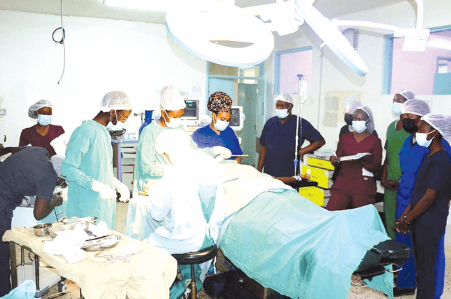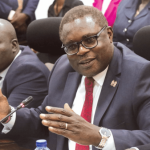When Bernard Sigei left home for work one morning, he never anticipated that his life would take a dramatic turn. He was attacked and robbed in an incident that nearly cost him his life. Had it not been for advancements in health technology and medical care in Kenya, Sigei might be discussing how he is adapting to life with a disability.
On that fateful day, as the sun rose, Sigei set out to earn some money in Nairobi’s Industrial Area, where he primarily worked as a casual laborer at a factory. “While heading to work, robbers suddenly attacked me with a machete. They left me for dead, and if it weren’t for Good Samaritans, I would have died there,” he recalls.
Sigei was quickly rushed to a health facility before being referred to Mbagathi Hospital for specialized treatment. He underwent plastic surgery that restored his arm’s functionality. “That surgery restored the use of my hand, and I’m now able to use it,” he shares.
Upon arrival at the hospital, he had a severed hand, and the injury had damaged bones, nerves, blood vessels, and muscle tendons, according to Mbagathi Hospital CEO Alexander Irungu. Without timely intervention, Sigei risked losing his arm. At the Level Five facility, doctors ordered a CT scan to assess the extent of his injuries and determine the appropriate treatment.
Using a newly installed CT scanner, the medical team examined Sigei, and after consultations, they concluded he was a candidate for reconstructive plastic surgery. The procedure lasted only four hours, and he has been recovering well, even starting to use the affected hand, according to Mohamed Athman, the orthopedic surgeon involved in the surgery.
“If the patient had not sought treatment promptly, he would likely have had his arm amputated, leading to a disability, because such injuries require immediate attention,” Athman explains. The surgery, which involved repairing fractured bones and tendons, was successful, allowing Sigei to regain the use of his arm.
The surgery, which was the first of its kind in Nairobi County, highlighted Mbagathi’s commitment to enhancing medical care and delivering high-quality healthcare services to the community. With this successful procedure, Kenya strengthens its reputation as a nation where hospitals utilize advanced technologies in healthcare.
Earlier this year, Mbagathi Hospital performed its first micro facial surgery, a complex procedure requiring highly skilled surgeons to repair facial injuries.
In December 2023, the hospital achieved a significant milestone in orthopedic surgery by conducting Kenya’s first cement-less total hip replacement. This procedure is particularly beneficial for younger patients with good bone density, utilizing a ceramic hip for an uncemented replacement, which results in smoother, more durable, and scratch-resistant outcomes.
Mbagathi is not the only facility in Kenya employing cutting-edge surgical technology. In February, Kenyatta National Hospital performed the first laparoscopic kidney transplant in the country. This surgery took only three hours and was led by urologists Paul Njogu and Charles Waihenya.
The procedure involved the use of small incisions, with the kidney being removed through a scope or camera using specialized miniaturized surgical instruments. Dickson Njorogeyson, who was diagnosed with chronic kidney failure last year, received the kidney from his cousin, Dickson Ndekei.



